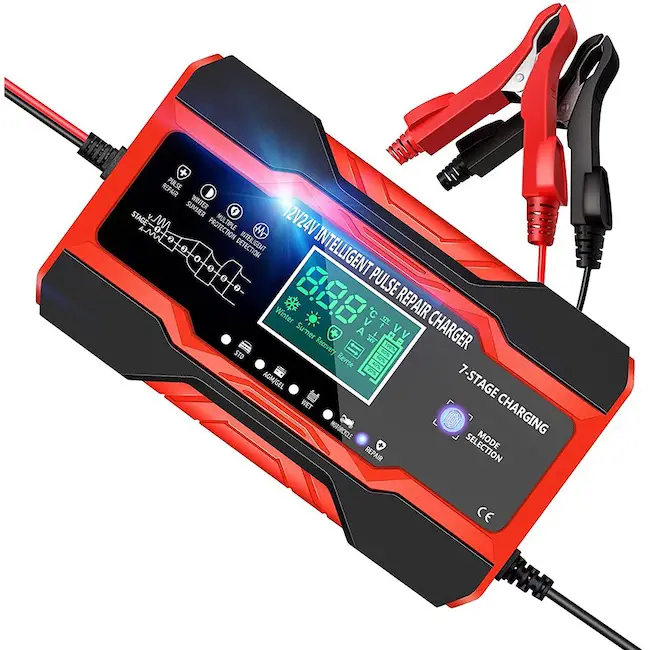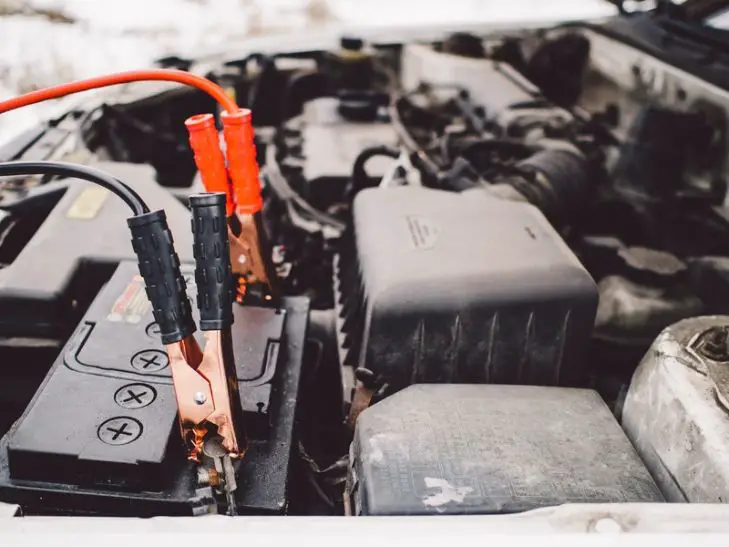Normally, a 10 amp battery charger takes about 4 to 11 hours to fully charge your battery. The difference in time depends on your battery features and current condition. Large and more drained batteries take longer to charge as compared to smaller or charged batteries.
So, to tell the exact time that your battery would take to fully charge, there are specific things you must first understand. And in this article, we’ll share with you most of the essential elements that would help you to estimate the time needed to charge your battery with a 10 Amps charger.
What Exactly is Amp Hour?
An amp hour is the amount of charge that can be put out. The same applies to the power output. If your battery has 36 amp hours, that means it can output about 1 amp for up to 36 hours. When its output is 3 amps, then the battery will take about 12 hours. And so on and so forth.
However, when you use a 10 amp charger, it means that the battery will be getting 10 amps within an hour. So, if reaches full charge at 36 amps, then it takes about 3½ hours before it gets fully charged.

How Long Does It Take To Charge The Battery At Different Amps?
The time taken depends on the capacity of your battery. Let’s assume our battery has 36 amp-hours.
So, using a 2 amps charger would mean it will take 18 hours to recharge the battery because the charger will pump out 2 amps an hour in an initially empty battery.
The charger will have to work for 18 hours. In the same way, if you use a 4 amps charger, it will take 9 hours. Using an 18 amps charger would mean the battery will be fully recharged in 2 hours.
These estimates, however, are correct if your battery didn’t have any charge. If the battery had any charge, then it would take less time than the estimates shared above.
Should I Charge My Battery At 2 Or 10 Amps?
Charging a battery is nothing but transferring electrons from the cathode to the anode. During the transfer process, they generate heat. This heat is bad for the battery’s health. Transferring electrons slowly causes less heat than moving at a greater speed.
The heat generation at 10 amps will be much greater than heat at 2 amps. So, it is possible it is better to charge the batteries at a slower pace. Although it will take longer, the battery will also last longer.
What Amp Should I Charge My Car Battery At?
There are a few aspects to consider before settling on any charging amps. First of all, a slow charge is better.
However, in most cases, you don’t have the luxury of time to charge your battery with the slowest charger. The most important thing is to find a balance between charging time and heat generation.
If you have the choice to charge the battery overnight or longer, then definitely go for less than 10 amps an hour. Charging with more than 20 amps is considered fast charging. It will generally produce more heat.
The battery will be efficiently charged at 4 to 8 amps an hour. You can go more than 20 and up if you need to charge it faster.
What Is The Normal Charging Voltage For A Car Battery?
The normal charging volt for a car battery is 12.6 volts. Charging at this level makes sure the battery is optimally charged.
Charging at a higher voltage will reduce the battery’s performance output and lifespan. Although, the battery will work fine even at 14.2 volts. But if it goes beyond that point, there are high chances of damage. For example, it might start to produce gas at 14.7 volts.
Do Car Batteries Charge While Idling?
Given that everything is running as it should be in your car, then yes. The batteries would be charging while the car remains idle.
However, it will be charged at a very low pace. As long as the action takes place on the alternator, the battery will be kept charging.
How Do I Know When My Car Battery Needs To Be Charged?
Here are a few of the signs to look for,
- You will experience power loss in the car’s electrical equipment.
- The battery warning sign will come alive.
- The lights will get dimmed.
- The car will struggle to start.
- For any reason, if the battery needs a jump start, it could be a cue.
How Often Should You Charge Your Car Battery?
There’s no specific answer to this question. The car battery charges itself automatically as you drive your car. However, sometimes it requires boosting.
That’s why it’s important to regularly use a multimeter to check your battery charge level. And when the battery charge is going down at an alarming rate, you can recycle it and recharge.
Bottom Line
It takes about 4 to 11 hours to charge your car battery at 10 amps. The difference in time is caused by the battery specifications and conditions. But if you charge it with different amps, it might take less or more time depending on the amps you’ve chosen.
